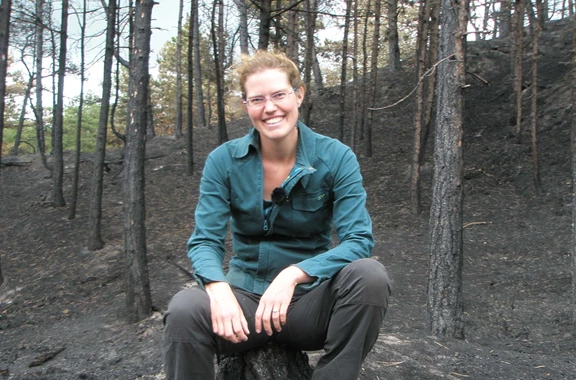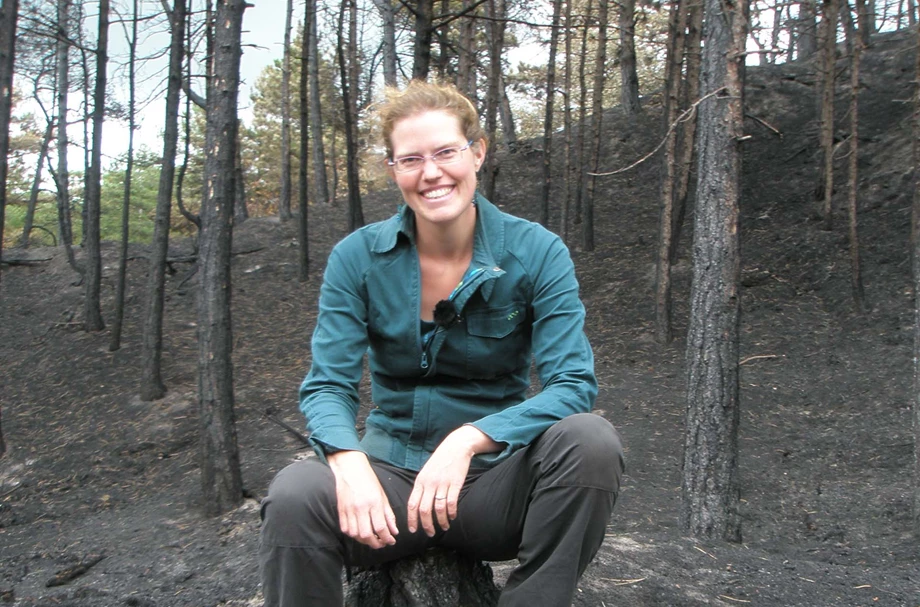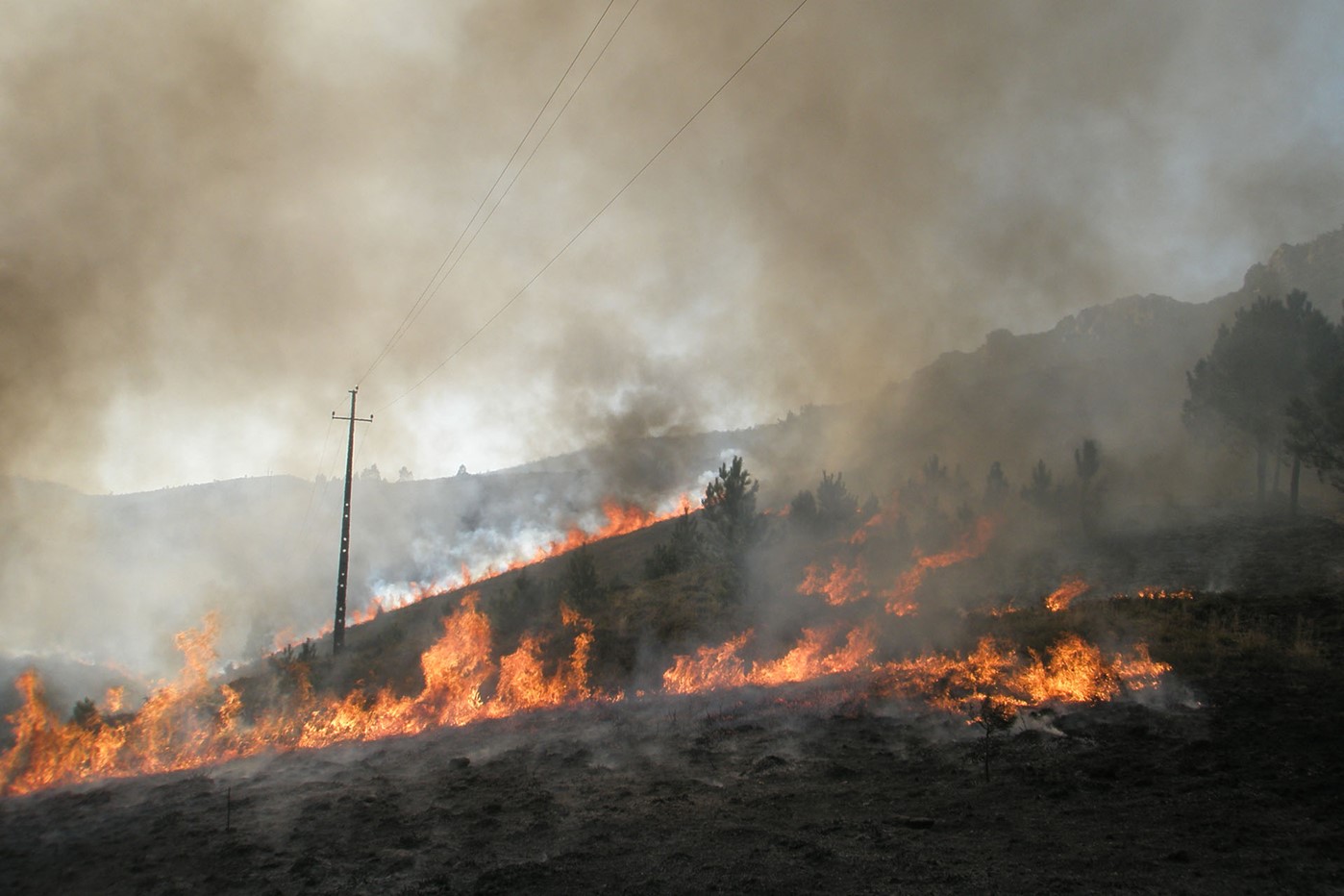


Climate change can lead to less rainfall. As a result of the ensuing drought, the risk of forest fires increases. Cathelijne Stoof, who is soil expert and PhD student at the chair group Land Degradation and Development, is studying the effect of fire on soils and hydrology. She did this in Portugal by burning a shrub catchment of ten hectares with a controlled fire. This was the first experiment on this scale.
Vegetation often burns away completely after forest fires. This can have a considerable impact on the hydrological cycle. In unburned situations, shrubs intercept a large part of the rainwater. With the vegetation removed by fire, suddenly a lot more water needs to find its way to the water courses, either above- or belowground. In addition, a fire can dry out a soil to such an extent that it becomes water-repellent. As a result, water runs off superficially, causing a rapid spike in river discharge and leading to possible flooding. Cathelijne Stoof hopes her research will ultimately provide insight into which strategies are best applied to prevent flooding and erosion after forest fires.

'During the research, I used water sensors to measure the water levels in streams. I also made extensive use of a small arable land auger when taking soil samples to determine water repellency and when measuring soil depths. During my fieldwork in Portugal I had frequent contact with Royal Eijkelkamp. After a while they knew exactly who I was and what I was doing', said Stoof.
'Before, during and after the fire, we carried out various measurements such as precipitation, run-off, soil moisture and temperature. during the fire, the flames were 900 °C, the soil was 100 °C and the soil at depth of 1 cm was 25 ° C. Because the soil remained relatively cool, the impact of the fire on the soil was only minor. This is mainly because the fire took place in the winter. A summer fire can degrade the soil. Our research shows that even if the soil is not damaged, fire can have considerable hydrological impact because of vegetation removal. So, after a fire it is important that plant cover returns as quickly as possible.'

Need advice choosing the right product for your application? Our specialist Sandra is happy to help.